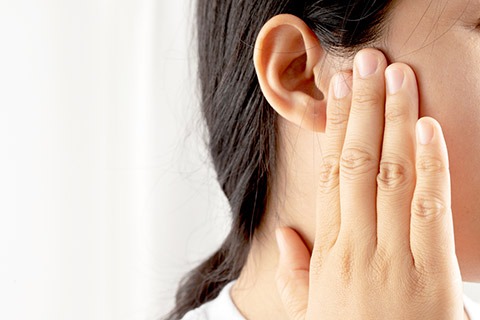Otitis Media (Middle Ear Pain) Causes, Symptoms And Treatment
Otitis media is an infection of the middle ear. This is the part of your ear just behind the ear drum. Otitis media is very common in children, but can also affect adults. Most children have at least one middle ear infection before they reach school age.
HEALTH


What Are The Symptoms Of Otitis Media?
Otitis media often begins with a cold, resulting in a painful throat and runny nose.
When the infection goes into the ear, you may notice ear discomfort, headaches and fever.
Babies and young children symptoms:
Frequent night time crying
Ear pulling or rubbing and irritability.
Lose their appetite.
Causes Of Otitis Media?
Bacteria and viruses may both cause otitis media. The middle ear is linked to the throat via the Eustachian tube. When you get a cold, the infection may travel up this tube, from the back of your throat to the middle ear. The infection in the middle ear produces fluid buildup, putting pressure on the eardrum.
Young children are more likely to have middle ear infections because their Eustachian tubes are smaller and more susceptible to infection.
How Is Otitis Media Diagnosed?
Your doctor will use an otoscope to check for indications of a middle ear infection. An otoscope is a tiny equipment that uses a magnifying lens and light to observe the eardrum.
If your kid has had several ear infections, they may need a hearing test. Your doctor may recommend them to an ENT (ear, nose, and throat) expert.
If an adult suffers frequent ear infections, he or she should consult an ENT expert to ensure that nothing severe is the cause.
How is otitis media treated?
Otitis media normally resolves on its own within a week. You or your kid may need pain medication, such as paracetamol or ibuprofen. Consult your chemist to verify you are administering the appropriate amount for your child's age and weight.
Your doctor may provide anaesthetic ear drops to alleviate discomfort. Before using ear drops, see your doctor to ensure that they are suitable.
Antibiotics are normally not suggested for middle-ear infections unless there is fever, vomiting, or other complications.
Children under the age of two are more prone to have problems from ear infections and to be administered medications.
Antihistamines and decongestants will not help you or your kid recover more quickly.
Why don't physicians prescribe antibiotics for otitis media ?
Otitis media often heals on its own after 4 days. On average, children who take antibiotics had 12 hours less ear ache than children who do not take antibiotics.
However, if antibiotics are recommended, some children may have negative effects. Antibiotics may potentially cause bacteria to develop resistance, which means that antibiotics may no longer be effective in the future.
Antibiotics are often provided only when your kid is at danger of developing problems.
Also Read Epiglottitis Causes and Treatment
Otitis media is an infection of the middle ear. This is the part of your ear just behind the ear drum.
Otitis media is very common in children, but can also affect adults. Most children have at least one middle ear infection before they reach school age. Children usually get fewer middle ear infections as they get older.
